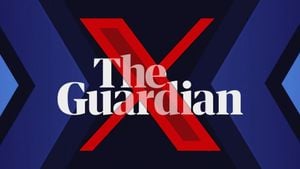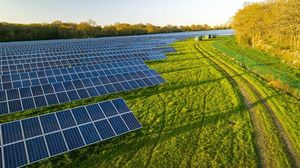NATO's Secretary-General Mark Rutte made headlines recently with his urgent call for increased support for Ukraine as the country continues to face Russian aggression. Engaging allies across the Western world, Rutte stressed the need to "change the trajectories of the conflict" during his remarks made before his meeting with French President Emmanuel Macron this Tuesday.
Addressing the media, Rutte stated, "We must do more than just keep Ukraine in the fight." This declaration signals not just support for Ukraine but also highlights the broader geopolitical stakes as Russia aligns itself with nations like China, North Korea, and Iran. Rutte described these strengthening ties as "very concerning," indicating the potential for these alliances to escalate the conflict even more.
Emmanuel Macron echoed Rutte's sentiments, underscoring the importance of creating a "strong Europe" capable of standing firm not just within NATO frameworks but also meeting global expectations from the U.S. This notion appears particularly pivotal amid fears surrounding potential political shifts with the possible re-election of Donald Trump as U.S. President.
The urgency of the situation cannot be overstated. Rutte's comments emerge against the backdrop of rising regional tensions and the ever-evolving nature of warfare. Western nations are increasingly recognizing the importance of solidifying their support for Ukraine, and Rutte’s call could serve as the catalyst for renewed military and humanitarian aid.
During the press conference, Rutte asserted, “Currently, the immediate challenge we face is the support for Ukraine,” emphasizing the need for concerted effort across Europe and North America. He urged allies to recommit to long-term support, highlighting how additional investments could help mitigate future conflicts globally. According to him, "The more we spend on defense, the more we reduce the risk of future conflict."
Rutte’s comments reflect not just concerns over Ukraine, but the wider threat posed by Russian expansionism. He mentioned, “Russia, working together with North Korea, Iran, and China is not only threatening Europe, but threatens global peace and security.” This perspective offers insight not just on regional dynamics but on broader global stability, pushing for unity among allied nations against rising authoritarianism.
The situation on the ground remains dire, with many Ukrainian civilians bearing the brunt of the violence. The continuing military operations, many of which have tragically led to civilian casualties, only add to the urgency of Rutte's appeal for more military aid. Understanding this picture is pivotal to international responses going forward.
Besides military assistance, NATO's conversation surrounding this issue includes discussions about economic support for Ukraine as it navigates the realities of war. Rutte mentioned needing to prioritize humanitarian aid efforts alongside bolstering military capabilities. The dual approach reveals how multifaceted the challenge is, with the necessity to address both immediate and long-term needs.
European nations have been making various commitments to bolster defense spending. Rutte highlighted France especially, mentioning its decision to invest over 2% of its GDP on defense this year—a move welcomed by allies and seen as indicative of the serious intent to contain Russian influence.
Meanwhile, the groundswell of support from NATO continues to evolve, and as discussions progress, follow-up meetings are expected to draw decisive plans to strengthen the alliance’s response. The rhetoric coming from NATO leaders points to unity and resolve, signaling to both allies and adversaries alike the seriousness of the allied commitment to Ukraine.
Indeed, NATO is also tasked with reviewing its long-term strategies concerning Russia. Rutte has hinted at the slow but steady formation of new frameworks for addressing the relationship with Moscow moving forward.
Overall, NATO's calls for increased support come amid heightened conflict expectations. This is particularly challenging as NATO contemplates the intersection of Western support, Russian alliances, and how best to navigate these tensions going forward.



